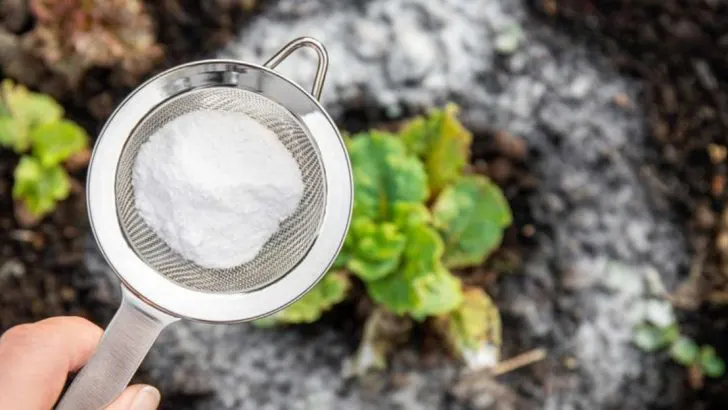You might be overlooking some of the most effective pest repellents—and they’re already in your kitchen or garage. These 17 unexpected household items can help you keep slugs, aphids, ants, and even deer out of your garden, without reaching for harsh chemicals. With a bit of creativity, your everyday clutter becomes a secret weapon for garden defense.
From coffee grounds and cinnamon to aluminum foil and plastic forks, each item on this list has a surprising role in keeping unwanted visitors at bay. Some disrupt scent trails, others create physical barriers, and a few even deter pests with their reflective surfaces or textures. Many of them also help your plants by improving soil health or deterring fungal issues.
These DIY solutions are budget-friendly, sustainable, and often more effective than commercial products. If you’re tired of nibbled leaves and vanishing seedlings, it’s time to raid your cabinets—not the garden center. You’ll be amazed at how these everyday objects can bring peace back to your patch of green.
Coffee Grounds
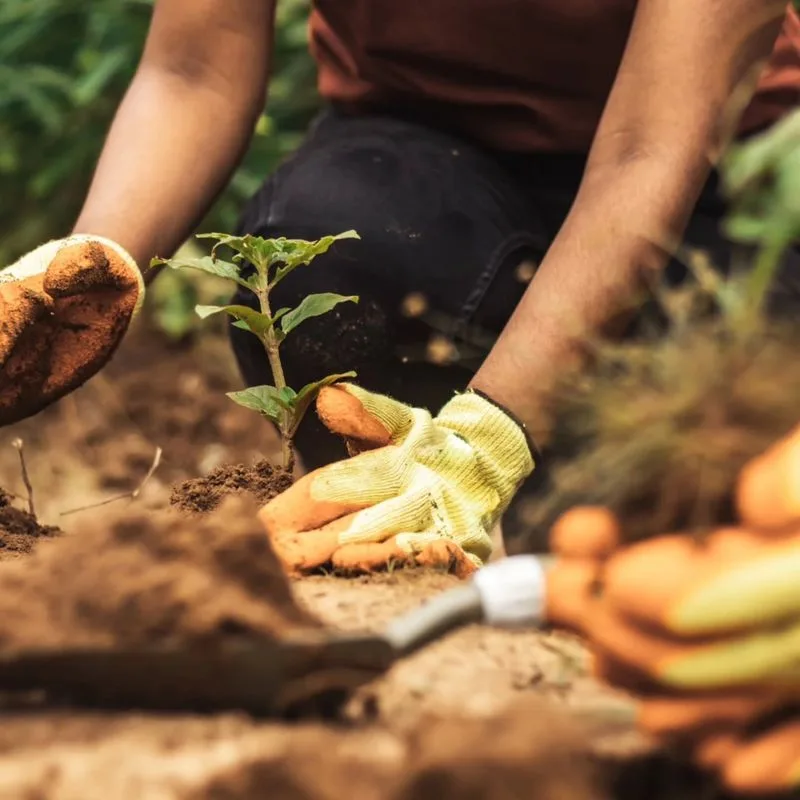
Leftover coffee grounds provide more than just a morning pick-me-up. These aromatic remnants deter unwanted garden visitors. Sprinkle them around plants to create a barrier that slugs and snails dislike. The grounds also improve soil quality, enriching it with nitrogen. A simple, sustainable solution, coffee grounds not only repel pests but also contribute to a healthier garden environment. Utilizing them reduces waste and offers an eco-friendly approach to pest management. Embrace this fragrant armor and watch as your plants thrive, untroubled by munching intruders.
Eggshells
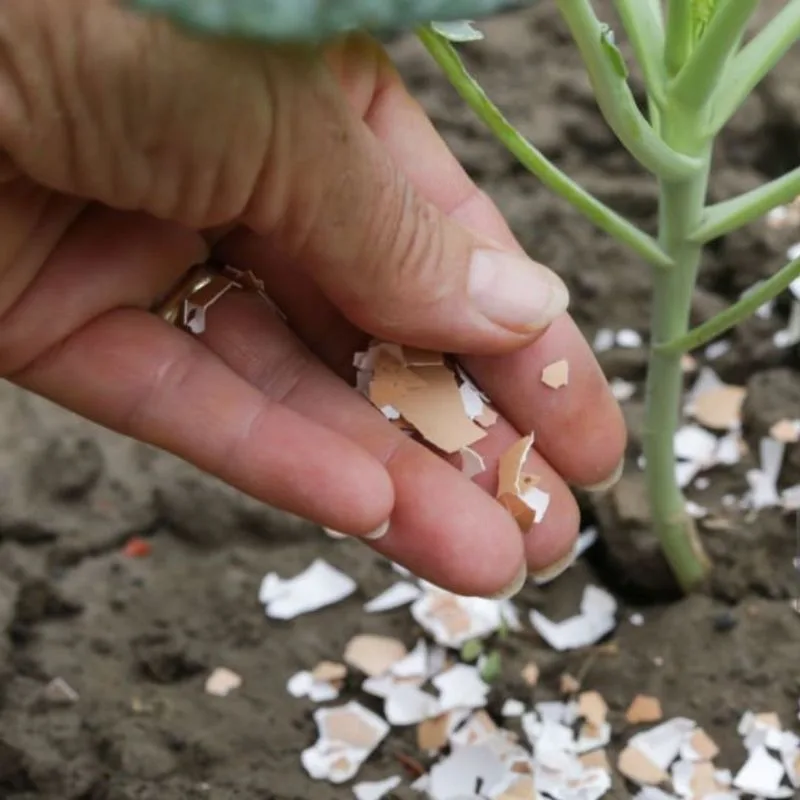
Don’t toss those eggshells just yet. Their sharp edges act as a natural deterrent to soft-bodied pests like slugs and snails. By scattering crushed shells around your plants, you create a physical barrier that these pests avoid. Additionally, as eggshells decompose, they enrich the soil with calcium, promoting plant health. This dual-purpose use of eggshells makes them an invaluable addition to any garden. Not only do they protect your plants, but they also contribute to their nourishment, ensuring robust growth and resilience against common garden nuisances.
Vinegar
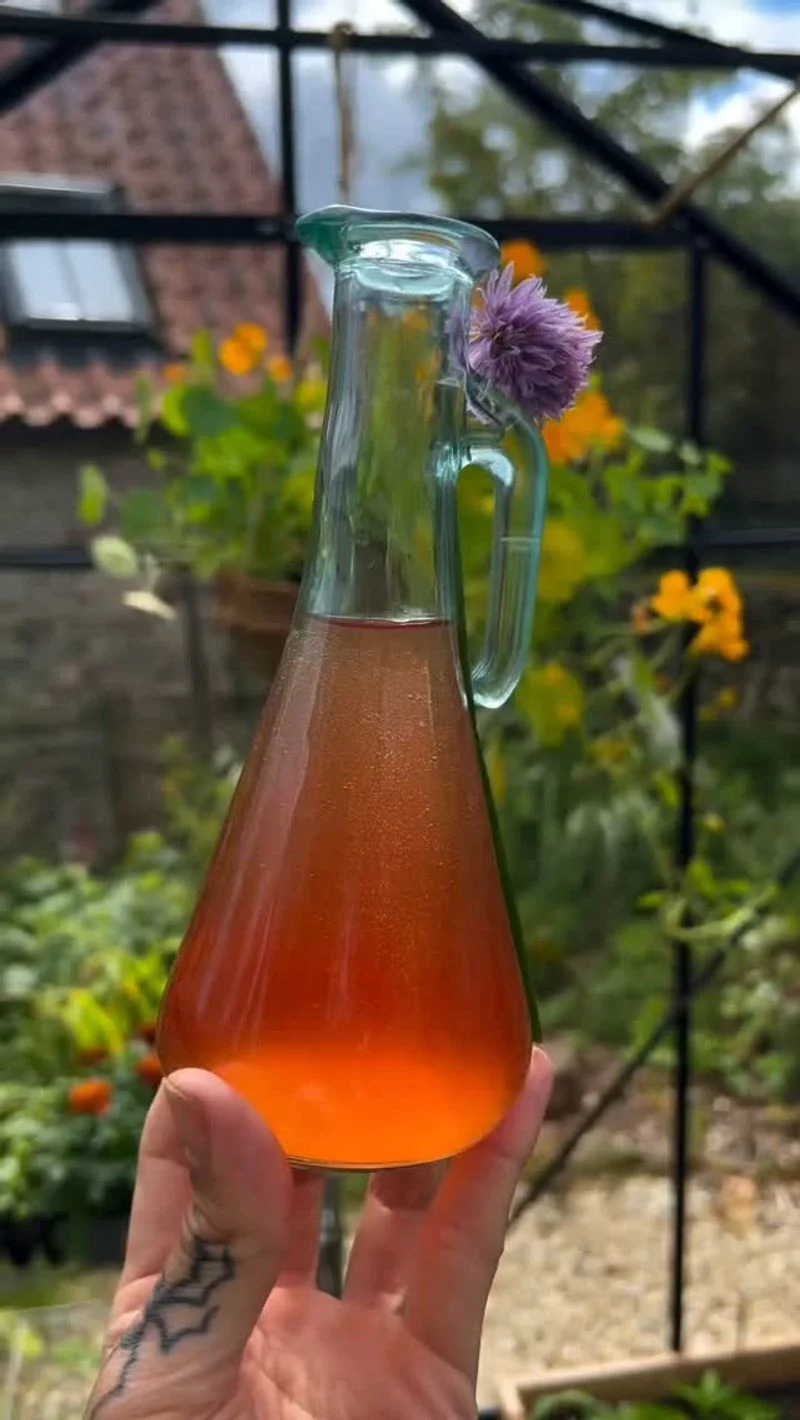
Vinegar, a kitchen staple, doubles as a powerful garden ally. Its strong scent and acidity repel ants and other crawling insects. Use it as a spray around the perimeter of your garden to establish a pest-free zone. Vinegar also disrupts the scent trails that pests rely on, making it harder for them to invade your plant paradise. This cost-effective method harnesses vinegar’s natural properties, minimizing pest problems without resorting to harsh chemicals. Embrace this simple solution to keep your garden vibrant and insect-free.
Aluminum Foil

Who knew kitchen foil could be a gardener’s secret weapon? Reflective and shiny, aluminum foil confuses and deters birds and insects from approaching your plants. By reflecting light, it creates an unwelcoming environment for pests, who tend to avoid such brightness. Wrapping foil around the base of plants or using it as garden mulch enhances its deterrent effect. This ingenious use of foil offers a chemical-free method to protect your garden, turning everyday kitchen supplies into effective pest repellents. Let your plants shine while keeping pests at bay.
Baking Soda
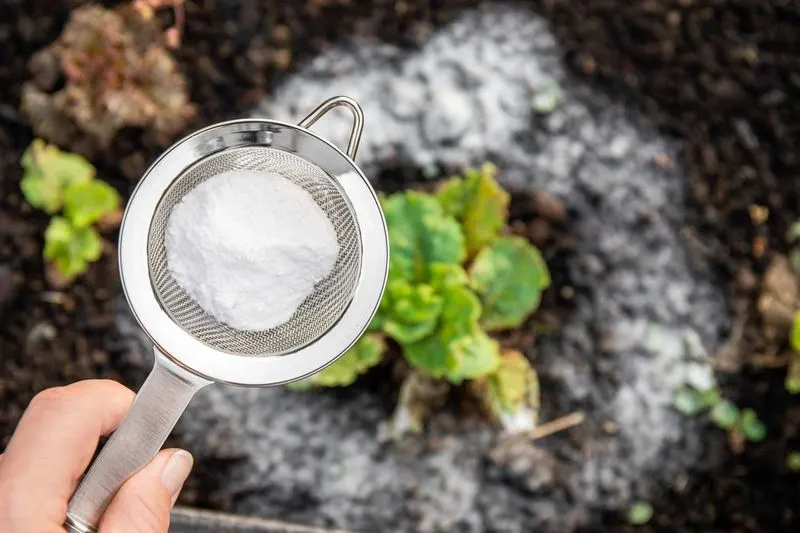
Baking soda is more than a baking ingredient; it’s a versatile pest repellent. Its alkaline nature disrupts the life cycle of insects like aphids and spider mites. Sprinkle baking soda onto the soil or mix it with water for a spray application, targeting problem areas. This household staple not only wards off pests but also helps with fungal issues, such as powdery mildew. Embrace this gentle but effective method to maintain a healthy garden ecosystem. Baking soda offers a natural approach to safeguarding your plants, ensuring they remain vibrant and pest-free.
Cinnamon
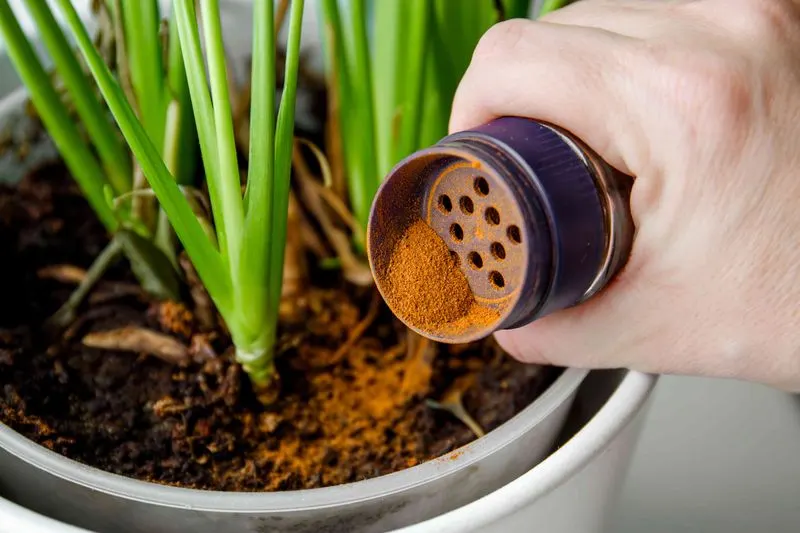
Harness the power of cinnamon to deter garden pests effectively. Its strong aroma confuses insects, disrupting their scent trails and deterring them from your plants. Sprinkle cinnamon around seedlings or blend it with water for a spray solution. This spice doesn’t just repel pests; it also combats fungal infections, protecting young plants from damping-off disease. Cinnamon’s multifaceted benefits make it an essential tool for gardeners seeking natural methods. Enhance your garden’s health and resilience with this aromatic protector, ensuring that your plants grow strong and untroubled.
Beer
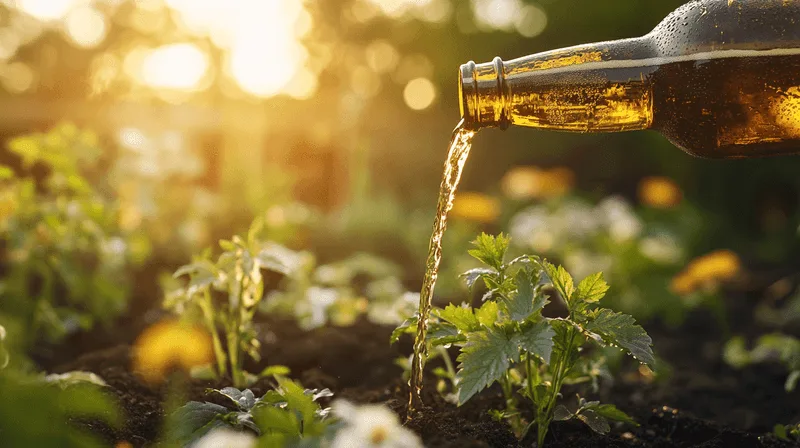
Beer, often associated with relaxation, serves a surprising role in pest control. Snails and slugs find its smell irresistible, leading them into traps where they can’t escape. Setting shallow dishes of beer at ground level lures these pests away from your plants. This unexpected use of beer offers an organic, effective way to reduce slug and snail populations in your garden. By appealing to their senses, beer traps provide a non-toxic alternative to chemical treatments. Enjoy a slug-free environment and let your plants flourish under your care.
Garlic
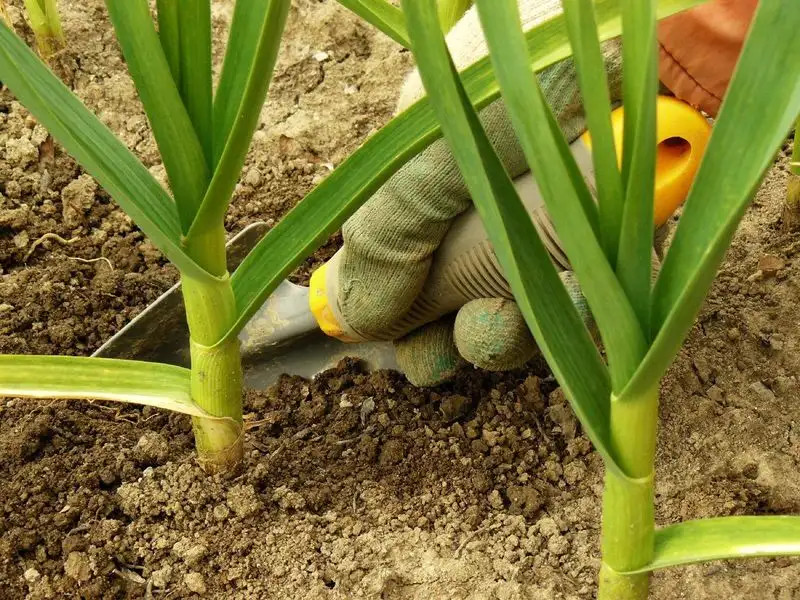
Garlic’s pungent aroma does more than enhance culinary dishes; it repels a variety of garden pests. Planting garlic near vulnerable plants creates a natural barrier against insects like aphids and beetles. Garlic spray, made from crushed cloves and water, can be applied directly to leaves for added protection. This dual action—repelling pests and fortifying plant defenses—makes garlic a valuable ally in maintaining garden health. Embrace this aromatic shield to safeguard your plants, allowing them to thrive without the interference of common garden invaders.
Onion Peels
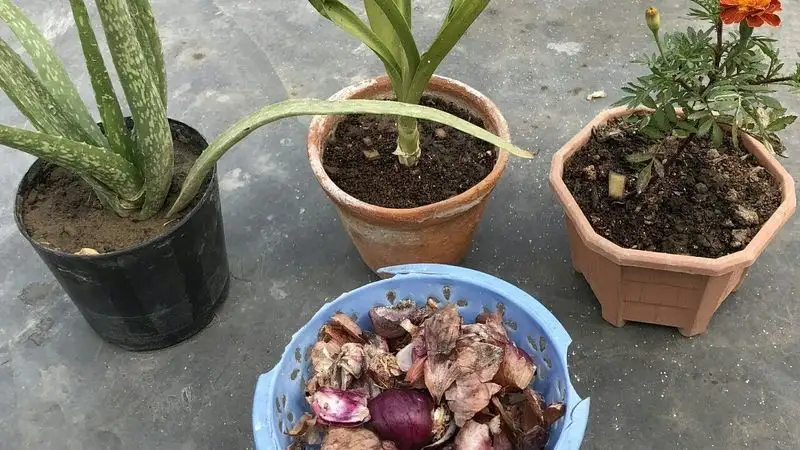
Don’t discard those onion peels; they’re a natural pest deterrent. The sulfur compounds in onion skins repel insects, protecting your plants from unwanted visitors. Spread peels around the base of plants or steep them in water to create a spray. This method not only wards off pests but also enriches the soil with beneficial nutrients. Utilizing onion peels provides an eco-friendly, sustainable approach to garden care. Let your garden benefit from this kitchen waste, turning it into a valuable resource for pest prevention.
Soap
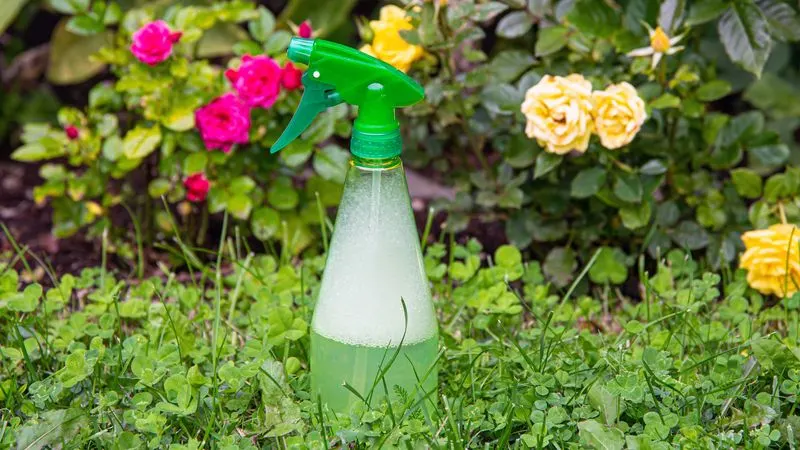
Regular soap bars can be transformed into effective pest control tools. Soap disrupts the cell membranes of soft-bodied insects like aphids, leading to dehydration. Dissolve soap shavings in water and spray the mixture on affected plants. This gentle solution targets pests without harming beneficial insects. Soap’s versatility extends beyond cleaning to maintaining a harmonious garden environment. By choosing this everyday item, gardeners can manage pests sustainably, ensuring that plants continue to thrive. Embrace this practical solution to keep your garden flourishing and pest-free.
Peppermint Oil
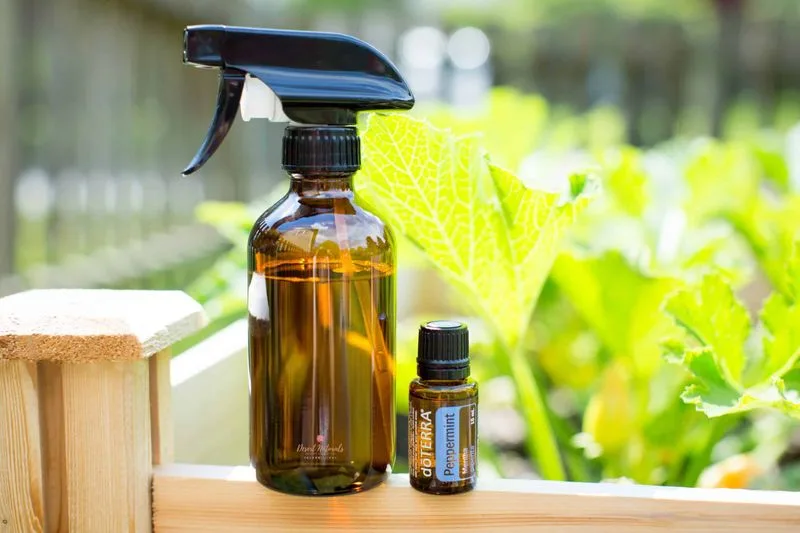
Peppermint oil offers more than just a refreshing scent; it’s a potent pest repellent. Its strong aroma confuses and deters insects like ants and mosquitoes. Dilute peppermint oil with water and spray it around your garden to create an invisible barrier. This natural deterrent keeps unwanted visitors at bay while adding a pleasant fragrance to your outdoor space. Embrace the power of peppermint to maintain a peaceful, pest-free garden environment. With its dual benefits, this essential oil becomes a valuable tool in your gardening arsenal.
Black Pepper

Black pepper isn’t just for seasoning; it plays a role in deterring pests. Its pungent aroma and spicy nature repel insects like ants and beetles. Sprinkle ground black pepper around plants to create an unpleasant environment for these intruders. This common spice not only adds flavor to meals but also enhances your garden’s defenses. By utilizing black pepper, gardeners can employ a natural, non-toxic method to protect their plants. Embrace this culinary ingredient as a valuable ally in preserving your garden’s health and vitality.
Chili Powder
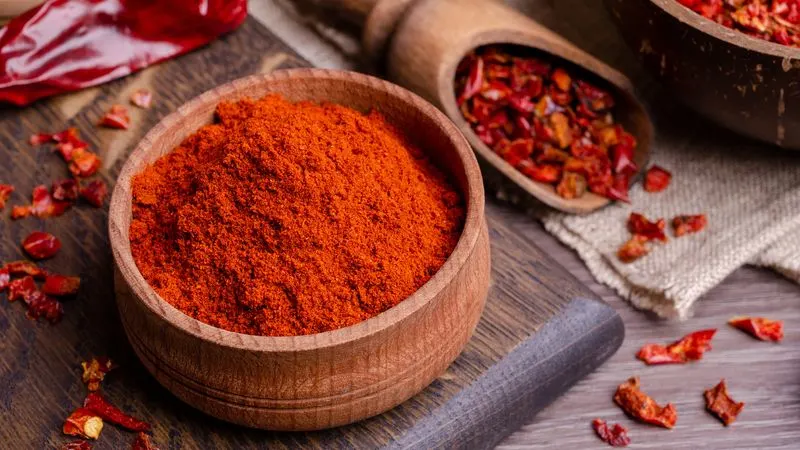
Chili powder brings heat to your culinary creations and serves as a surprising pest deterrent. Its spicy nature repels insects and larger pests like rabbits from nibbling on plants. Sprinkle chili powder around your garden to create an uninviting environment for these intruders. This fiery spice offers a natural alternative to chemical treatments, ensuring your plants remain protected. Embrace the power of chili to safeguard your garden, harnessing its intensity to keep pests at bay. Let this spice add both flavor and protection to your outdoor sanctuary.
Lemon Juice

Lemon juice, with its tangy zest, offers more than just culinary delight. Its acidic nature disrupts the habitat of many pests, deterring them from your garden. Spraying a mixture of lemon juice and water around plants can create a protective barrier. This citrusy solution not only repels pests but also adds a refreshing aroma to your outdoor space. Embrace lemon juice as a natural, eco-friendly alternative to chemical pesticides. Let this vibrant fruit contribute to a thriving, pest-free garden environment.
Epsom Salt
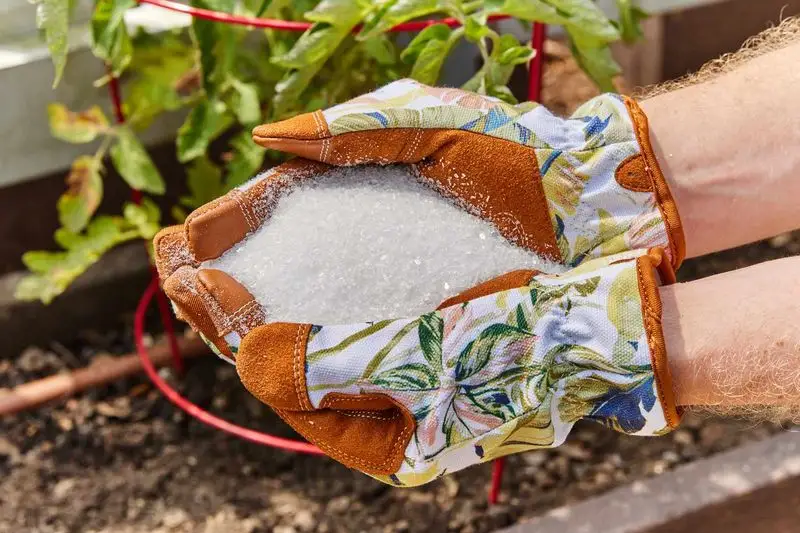
Epsom salt, known for its therapeutic uses, offers unexpected benefits in pest control. Its magnesium content enhances plant growth, while its granular texture deters soft-bodied pests. Sprinkle Epsom salt around plants or dissolve it in water for a foliar spray. This dual-purpose approach enriches the soil and protects plants from unwelcome guests. By incorporating Epsom salt into your gardening routine, you foster a healthy, balanced ecosystem. Embrace this mineral’s versatility to maintain a vibrant, pest-free garden.
Orange Peels
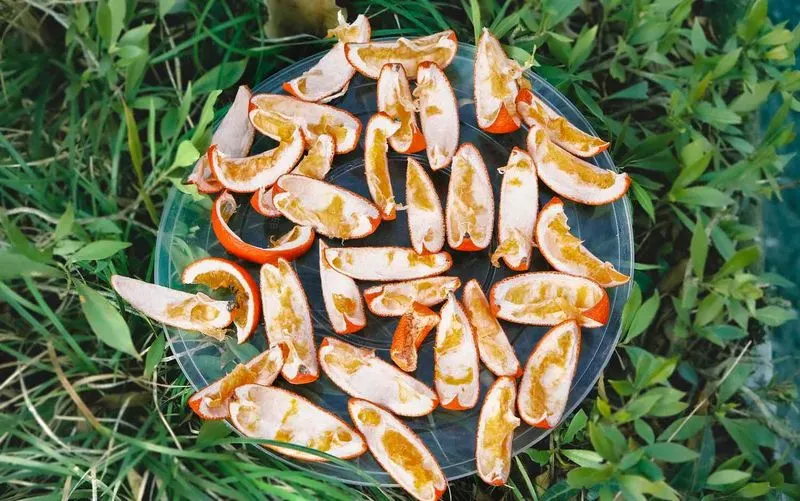
Orange peels, often discarded, offer a fragrant solution to pest problems. Their strong citrus aroma deters ants and mosquitoes, creating a natural barrier around plants. Scatter peels in the garden or steep them in water to make a spray. This method not only repels pests but also enriches the soil with beneficial nutrients as the peels decompose. Utilize orange peels as an eco-friendly, sustainable resource to protect your plants. Let this citrusy waste transform into a valuable ally in maintaining a thriving, pest-free garden.
Chalk

Chalk, a childhood favorite, serves an unexpected purpose in the garden. Drawing a line of chalk around plants creates a boundary that ants and other crawling insects avoid. The chalk disrupts their scent trails, effectively keeping them at bay. This simple, non-toxic solution utilizes a common item to protect your garden. By incorporating chalk into your pest control strategy, you embrace an eco-friendly approach that maintains garden health. Allow this playful tool to guard your plants, ensuring they flourish without interference from pesky intruders.

